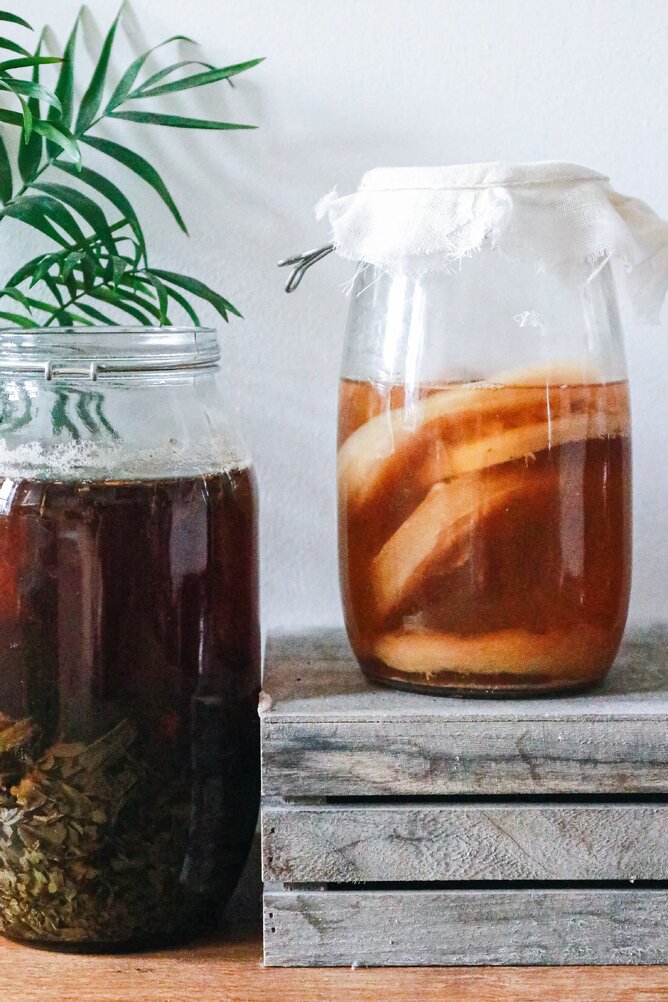Gut-loving facts
When we talk about inflammation, it's a very broad term. If a person is feeling sluggish, tired, IBS-symptoms, headaches, lower immunity etc. it is always a good idea to try out an anti-inflammatory diet, to see if any of the symptoms go away before going for pharmaceuticals. On the contrary a lot of the meds recommended for these symptoms, could well have the opposite effect.
How does your gut affect your health?
Research have been showing in the past 15 years, that the gut functions as a second brain, and these two communicate very closely with each other. What we feed the gut will affect how we feel. It is a very complex area. Researchers are only really scratching the surface of not only the gut-brain-connection, but also the intriguing gut microbiome world. Did you know that we have trillions of gut microbiota and 1000s of different species in our gut?! And these little guys impact how well our body reacts to inflammation and our immune function. So, in short, we need to introduce a lot of healthy gut bacteria (probiotics) to get a diverse range, in order to digest and absorb as many nutrients from our foods as possible. And then we need to feed these fellas some good fibers (prebiotics).
I'm now going to explain where we can find these foods, and no we don't need to get them in a white little pottle from the pharmacy! These foods are easily accessible in our garden and/or our supermarkets.
Where to find probiotics in food
These are foods with living bacteria in them:
- kefir yoghurt
- kombucha
- kimchi
- sauerkraut
- probiotic yoghurt like Yakult
You don't need huge quantities of these foods, but it's a good idea to start including at least one of them each day. My personal favourite is kombucha, as I brew my own. I find that it takes bloating away and has helped one of my children to stop being constipated, if she has a glass a day. And it's of course delicious! My second favourite is sauerkraut as it actually contains both probiotics and prebiotics all in one! Cabbage is also usually a cheap vegetable, especially when in season.
Making your own probiotic foods is often quite simple and particularly cost-efficient. I regularly post 'how to'-videos on my Instagram if you feel inspired!
Where to find prebiotic in food
Now this list is long, as it is essentially fibers. However not all fibers are prebiotics.
Mushrooms, Jerusalem Artichokes, Garlic, Leek, Onions, Spring Onion, Asparagus, Beetroot, Fennel, Green Peas, Snow Peas, Cabbage, Dandelion Greens, Eggplant, Chickpeas, Lentils, Red Kidney Beans, Baked Beans, Nectarines, White Peaches, Persimmons, Watermelon, Grapefruit, Pomegranate, Dried Fruit (like dates or figs), Apples, Bananas, Barley, Rye, Wheat (pasta, bread, etc), Oats, Wheat Bran, Couscous, Cocoa, Flaxseed.
So, it shouldn't be too hard to find a few things on this list to add to your weekly shop, or why not throw in a few seeds in the garden and grow some organic fruit or veges yourself?
Good luck feeding your gut some gut-loving bacteria and fibers, the rest of your body & mind will thank you for it :)
Need a hand to improve your food habits?
If you would like to discuss how to improve your gut health and food habits, don't hesitate to get in touch with me. As a trained holistic health coach with lots of experience within anti-inflammatory foods I'm here to guide and coach you!





